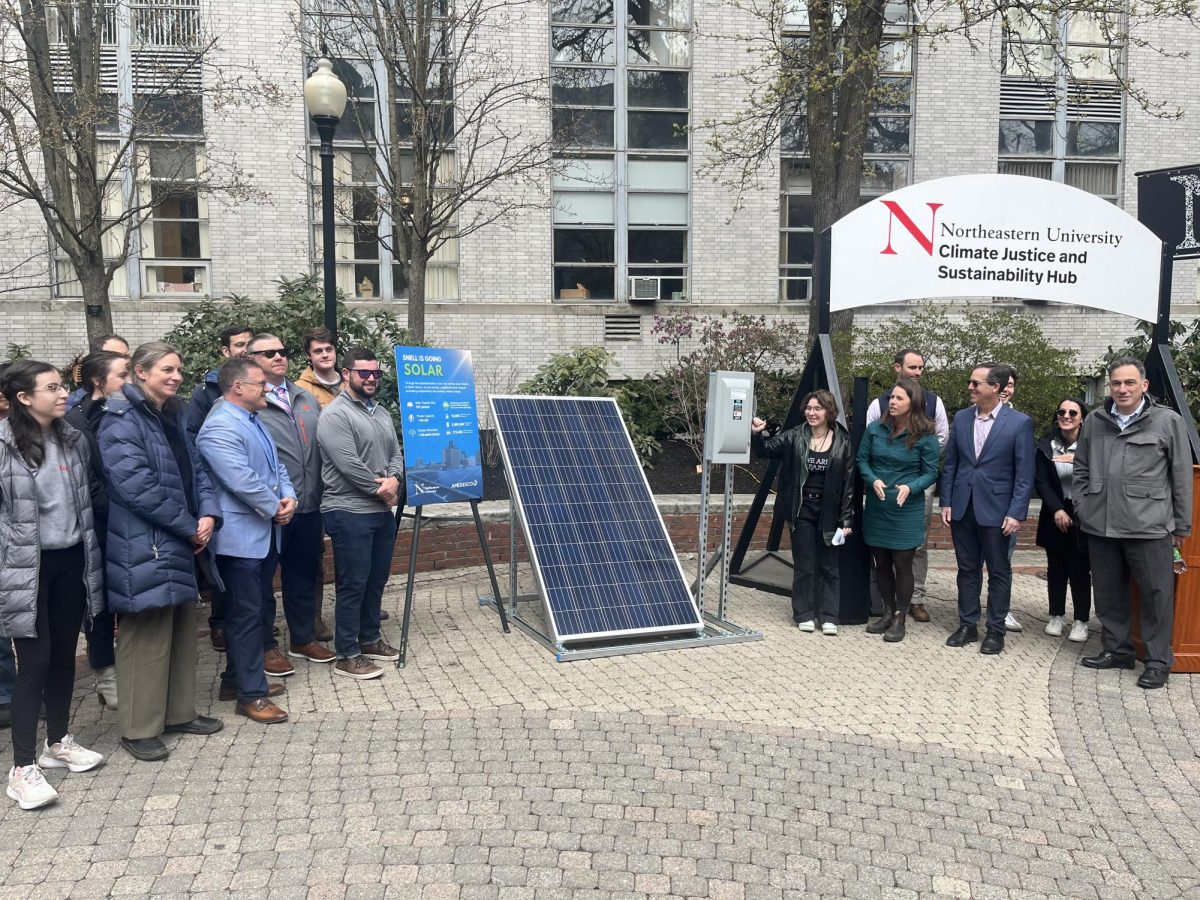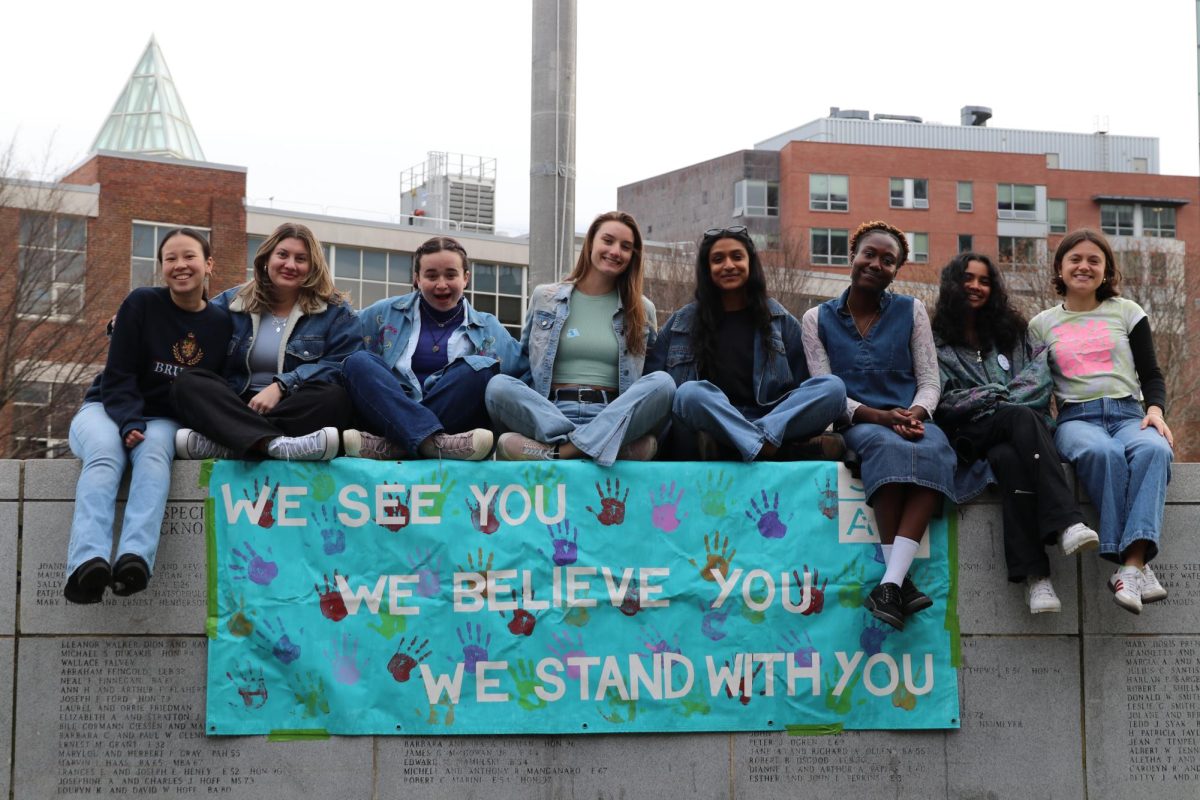By Kelly Kasulis, News Correspondent
A pool of students at Northeastern and other area colleges frequently intern as student campaigners and part-time employees for notable public figures like City Councillor Ayanna Pressley.
“We’ve had a number of students, often on campaigns for internships and academic credit,” said John Portz, professor and chairman of the political science masters and Ph.D programs at Northeastern. “Other times, students will just do it because they want to get engaged in policy and election.”
James Sutherland, a Northeastern political science Ph.D student who works in Pressley’s office, said that his involvement in the political landscape has significantly helped him in conducting research for his classes.
“I study local campaigns and elections, and I’ve actually written a couple of articles on campaigns dealing with this mayor’s race. The two go hand in hand,” he said. “The people I meet here have given me opportunities, insight and the historical background of the city that I’ve needed to take my own research [about] election day.”
All students interviewed said the benefits are widespread, whether it be work experience to jot down on a resume or the discovery of one’s passion in politics. Portz said that the best, most obvious benefit is a revitalization of interest in the classroom.
“It gives students a different perspective and a kind of level of energy and interest that often times isn’t there based on just reading about campaigns in a book or in a class setting,” he said. “It’s a richness of experience that they can bring back to the classes – they just get very energized and I see it.”
Johannes Eijmberts, the internship coordinator for the department of political science, said that the social climate of political campaigns is highly beneficial.
“There’s lots of excitement, and there’s lots of people to expose [students] to all sorts of opinions about candidates and their opponents,” Eijmberts said. “It helps students get a view of what campaigns are about and what to say or how to behave, and I think it’s very valuable for students to work with that.”
Eijmberts explained that several of his students have made significant connections through their involvement with campaigns. One of his students, sophomore political science major James Marlowe, works with the Republican Party of Massachusetts and according to Eijmberts, Marlowe is in a position to meet a surprising number of all kinds of local and national people.
Marlowe said that working for the Massachusetts GOP has helped him not only with class, but with harnessing new job opportunities.
“I learned a lot of things on the professional side, like how the government functions and how the nation operates, because, you know, in school we talk about how the legislative and executive branch works, but you don’t see how the state operates and how local politics affect us,” he said. “It’s really cool to see that.”
The downside, however, is that a number of campaigns do not count for academic credit. Eijmberts said that academic credit requires at least 225 hours and a journal relaying experiences, which a 4-6 week campaign cannot fulfill.
“For me, it’s not disappointing. I understand it,” he said. “But campaigns are still very, very valuable experiences.”
Portz agreed that many students learn precious skill sets, in particular what sparks their interest in the realm of political campaigns and a rapid workflow that will help them flourish in their later careers.
“Campaigns tend to run on that kind of rapid rate – a pace where things have to be done and responded to quickly,” he said. “In a class environment, sometimes things are spread out for a long time, so I think developing the skill to work in a quick, frenetic, active environment is great. We have students that get really hooked on campaign work and go on for a number of years doing campaigns in state races, national races and other countries.”
Elliot Friar, a sophomore marketing and journalism major from the Boston area, said that his work as an intern on Senator Elizabeth Warren’s campaign in 2012 taught him not only about political tactics, but the art of persuasion when trying to obtain votes.
“I learned that changing the minds of others isn’t always the best campaign tactic,” Friar said. “Sometimes making sure the key demographics can vote, for example, can lead to the campaign win.”
Friar helped students register to vote on college campuses and explained Warren’s key agenda to students on his campus. He participated in phone banks, talked to people on the streets and increased the supporting presence with other campaigners in target neighborhoods of young people.
“Getting the youth vote was very important for the campaign and proved to be a tactic that worked,” he said.
Friar, who said that he will try to become involved in Hillary Clinton’s campaign should she run for president, noted that the experience was overall very taxing, but worthwhile.
“It definitely increased my interest in politics,” he said. “I’ve got so much more to learn.”
Marlow had similar opinions.
“It’s a great way to put your foot in the door for future co-ops and potential careers in the future,” he said. “It’s something that will strike an employer’s eye, to know you have the experience on the political side and in office tasks – you know how to be self-regimented.”













